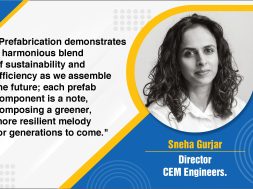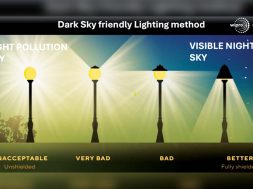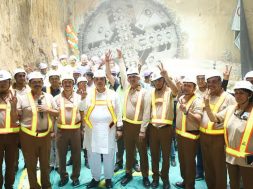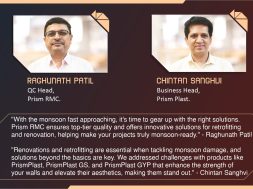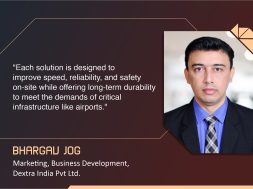Sustainable advancements in PEBs
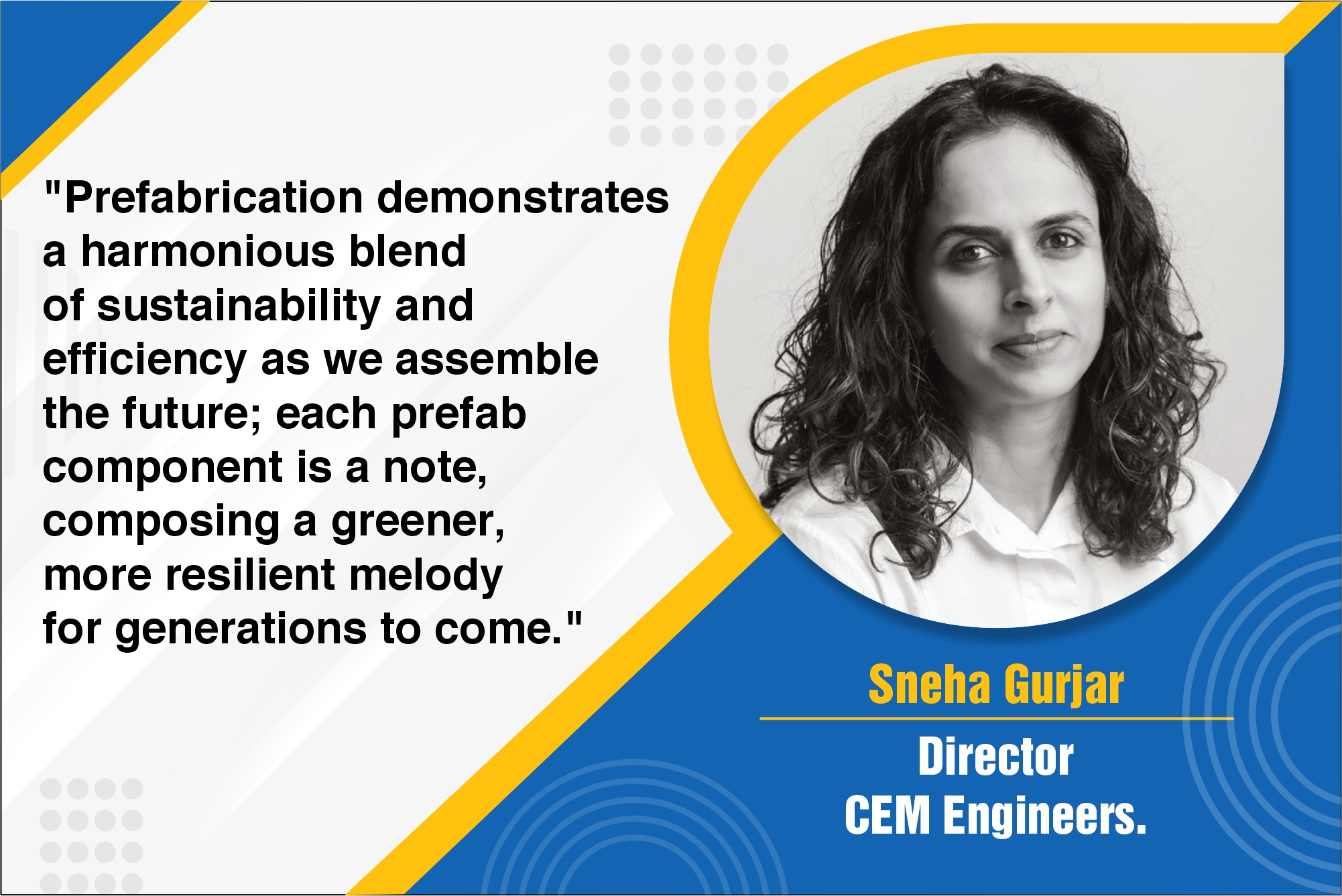
This exclusive interaction shares insights on how an innovative approach shapes the future of construction, offering a greener and more resource-efficient alternative to conventional methods.
Trends in the PEB industry
In prefabricated construction, modular building components are manufactured in factories, transported to the site and assembled on-site. It ensures that more than 50 percent of the project work occurs in factories, reducing air and noise pollution and water consumption on site, in contrast to RCC construction. A recent example is the new Parliament building project, currently under construction on Central Vista in New Delhi, using prefabricated blocks manufactured in factories out of Delhi.
There is a possibility of sleeker sections and longer spans combined with quality control due to the prefabrication of most parts. This impacts the experiential aspect of spaces for all scales of projects and is especially evident in mega projects like spatial stores/warehouses. Moreover, the prefabrication of steel elements saves time and costs, and it cuts large-scale projects. Prefabrication or using modular components has enabled rapid project development, with a higher quality of building execution and more control over cost prediction.
Technology and innovation
New innovative technology has opened up many possibilities in PEB designs, helping designers gauge the materials needed, the strength and durability, the impact of the structure and reduced errors. A recent trend arising in the PEB industry is incorporating IoT devices and sensors into buildings for real-time monitoring and maintenance. Smart buildings can provide valuable data on performance, energy usage, and occupant behaviour, allowing for better-informed decisions. Automation in manufacturing processes can improve precision and efficiency. Automated cutting, welding, and assembly lines can lead to faster production times and higher-quality products.
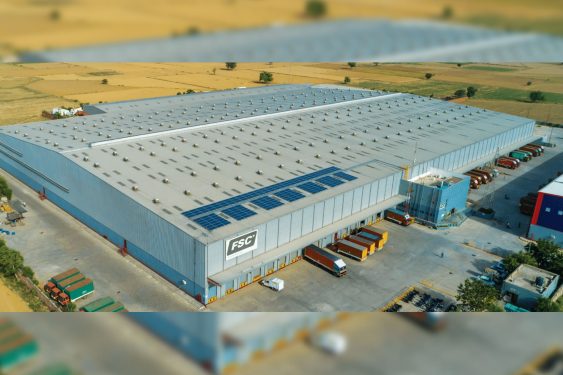
Sustainability trends
PEB is an excellent way to design buildings sustainably with energy efficiency and smart features. Developing and incorporating energy-efficient solutions, such as sustainable materials and technologies, align with the growing demand for environmentally friendly buildings. The standardisation of building components and pre-calculated numbers of units can reduce material wastage on site. Shorter construction time, curbing air and noise pollution, and minimising wastage directly contribute to a building’s sustainability goals. Further, reduced disruption to the building site and surrounding environment also mitigates the negative impact of construction on the neighbourhood community.
Challenges of PEB
Like all construction techniques, prefabrication also has challenges that might discourage developers from using it. Transportation of bulky or heavy building components from factories to the site, especially in crowded cities like Delhi, is a major inconvenience and incurs high costs. In such cases, architects, engineers, and project managers can design units suitable for transport or arrange transportation during off-peak hours. In such cases, the fabrication location must also be decided in advance, considering the allotted project costs and other logistics catering to feasibility. Furthermore, there is little room for error or spontaneous, ad-hoc changes in prefabricated development. Owners must decide on spatial design, material selection, and overall costs before the work begins.
With all the positives and negatives of prefabricated construction, one has to consider that this field is rapidly evolving and advancing in current times. However, the fact remains that it is a vital resource for enhanced and rapid construction that leaves a lesser impact on its surrounding environment than conventional methods. Considering that it has several benefits concerning pollution and the conservation of resources, developers must opt for prefabrication, especially in Delhi and other metropolitan cities in India prone to high pollution levels.
For more info visit : https://cemengineers.com/
Cookie Consent
We use cookies to personalize your experience. By continuing to visit this website you agree to our Terms & Conditions, Privacy Policy and Cookie Policy.
